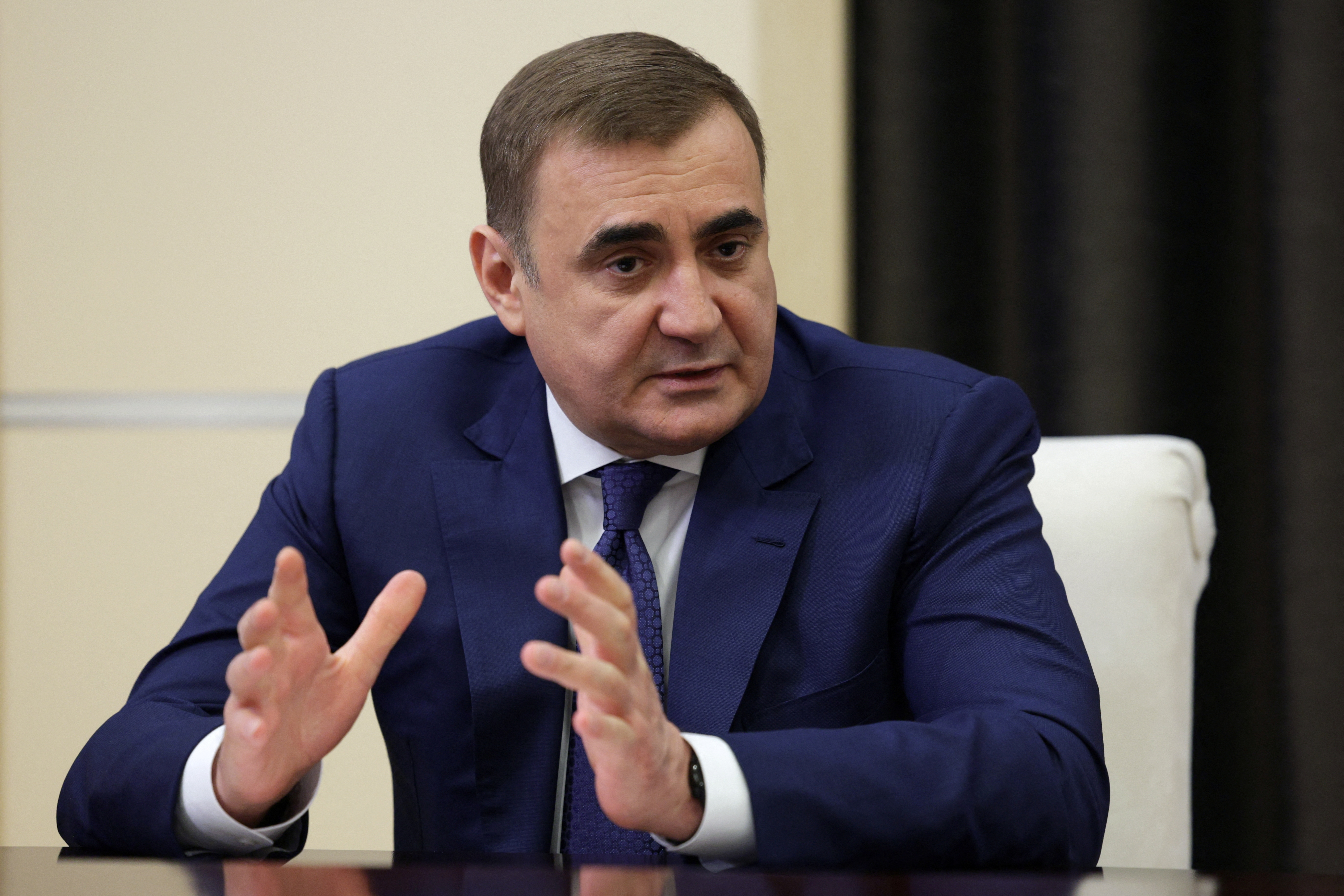Putin demotes Cold War warrior Patrushev and raises two younger allies

By Guy Faulconbridge and Andrew Osborn
MOSCOW (Reuters) -Russian President Vladimir Putin demoted Nikolai Patrushev, a Cold War warrior who crafted the Kremlin’s national security strategy, to a job overseeing the shipbuilding industry while raising two younger lieutenants to senior Kremlin jobs.
Since the 71-year-old Kremlin chief was sworn in like a tsar for a new presidential term on May 7, Putin has changed his defence minister amid the war in Ukraine and given a new generation of officials broad sway over the economy.
Putin kept Anton Vaino, 52, as chief of staff and Alexei Gromov, 63, and Sergei Kiriyenko, 61, as first deputy chiefs of staff, but handed former bodyguard Alexei Dyumin, 51, a Kremlin job and raised Maxim Oreshkin, 41, to deputy chief of staff.
Patrushev, a former KGB officer from St Petersburg where Putin was born, was moved from the heart of the modern-day politburo, where he had worked for 16 years as secretary of the Security Council, to oversee shipbuilding as a Kremlin aide.
His 46-year-old son, Dmitry, was, however, promoted to the job of deputy prime minister in charge of agriculture.
“Oreshkin was promoted, Dyumin was brought closer, and Patrushev Senior was heavily demoted,” a senior Russian source told Reuters on condition of anonymity due to the sensitivity of such public remarks.
Although Putin, in good health, is embarking on a new six-year term and is expected to rule for years to come his reshuffles are closely scrutinised by Kremlin watchers to try to discern if he is lining up potential candidates to succeed him.
There is no reliable information on who Putin may favour and being publicly identified as a potential successor is not something that anyone wants given the risks attached to being seem as a challenger. But the names of Dyumin, Oreshkin and Patrushev junior – all promoted in the latest shake-up – have long been the subject of speculation among Moscow’s political elite.
The Kremlin said Patrushev Senior, 72, would bring his vast experience to a role of a slightly different character but that shipbuilding was “an absolutely strategic sector” and did not rule out that he would be given further responsibilities.
Remaining in the Kremlin means Patrushev Senior will still have access to Putin, Russia’s paramount leader, and retain a degree of influence.
COLD WAR WARRIOR
Shipbuilding, though, is certainly a demotion for one of the Kremlin’s most powerful Cold War stalwarts, a former spy who sees the United States as a declining driver of catastrophic revolution intent on destroying Russia.
Patrushev, a former director of the Federal Security Service (FSB), once delivered sensitive Kremlin signals to both the Chinese and the Americans and is credited with helping to root out the ideological foundations of Russia’s biggest confrontation with the West since the 1962 Cuban Missile Crisis.
For Patrushev, like many former spies in Moscow, the West, led by the perfidious “Anglo-Saxons” has pushed the world to the brink of a global war because it refuses to accept the interests of Russia, China and regional powers in the Middle East and Latin America.
“The natural consequence of the United States’ destructive policies is the deterioration in global security,” Patrushev was quoted by state news agency TASS as telling colleagues from a grouping of post-Soviet republics in November.
“The risk that nuclear, chemical and biological weapons will be used is increasing,” he said. “The international arms control regime has been undermined.”
NEW GENERATION
Beyond Defence Minister Andrei Belousov and Patrushev, the news of the post-inauguration reshuffle was the promotion of a group of loyal men of a different generation who were given sway over the world’s biggest natural resources producer just as Putin girds for a long war.
In the government, Denis Manturov, 55, was given the role of first deputy prime minister and will run industry while Alexander Novak, 52, will remain as deputy prime minister overseeing energy but will get additional duties for running the economy.
Oreshkin, born only nine years before the 1991 collapse of the Soviet Union, was promoted from Kremlin economic aide to the job of deputy chief of staff.
“The importance of the economy is increasing, cooperation with the cabinet of ministers in this area is more intensive,” Kremlin spokesman Dmitry Peskov said.
A Russian source with knowledge of the situation said Oreshkin’s position would dovetail with Novak’s greater role within government to work to solve key economic problems.
Another source said the Kremlin was increasingly powerful when it came to economic policy, making Oreshkin’s role key.
Dyumin, though, remains one of the most eye-catching promotions as he was brought into the Kremlin after serving as a regional governor of Russia’s Tula region.
The Kremlin said he would oversee the defence industry, the State Council advisory body and sport.
Dyumin entered Russia’s Federal Guards Service (FSO), which ensures the security of the Kremlin elite, in 1995 and guarded Putin during his first and second terms. He has also worked as deputy head of the GRU (Russian military intelligence).
“Dyumin is a new aide,” said Sergei Markov, a former Kremlin adviser. “It is a talent pool. But where will he go? After all, many believe that Putin sees Dyumin as his successor.”
(Editing by Ed Osmond)







